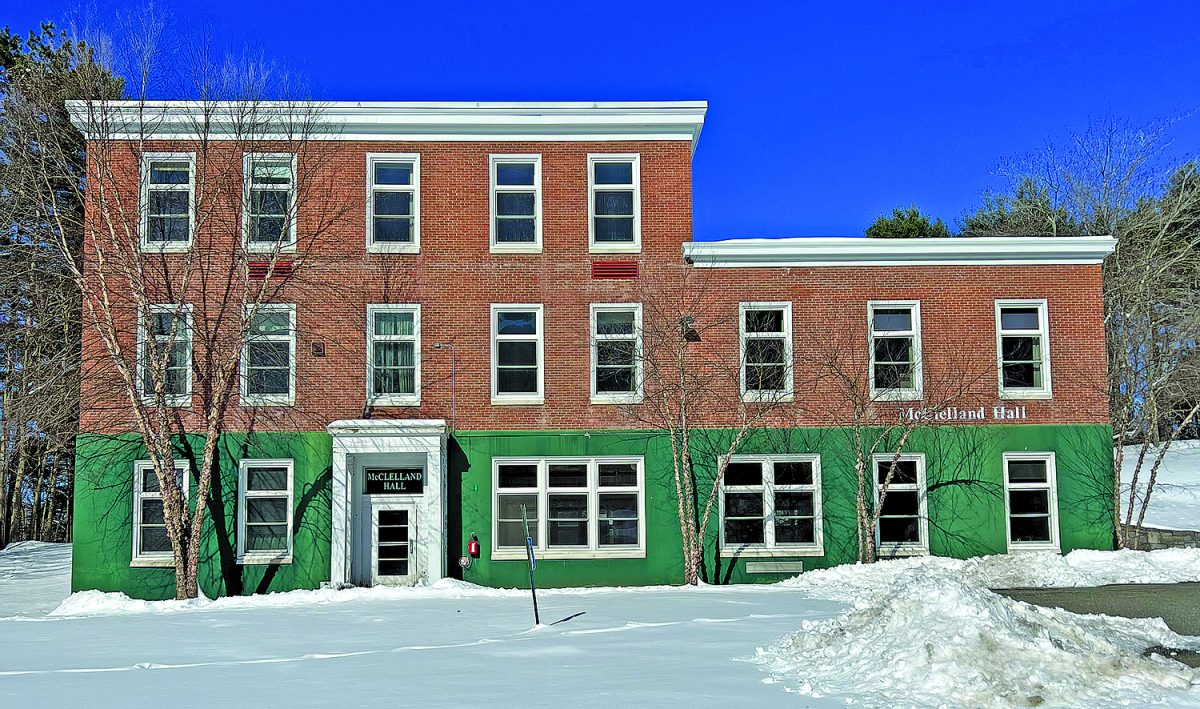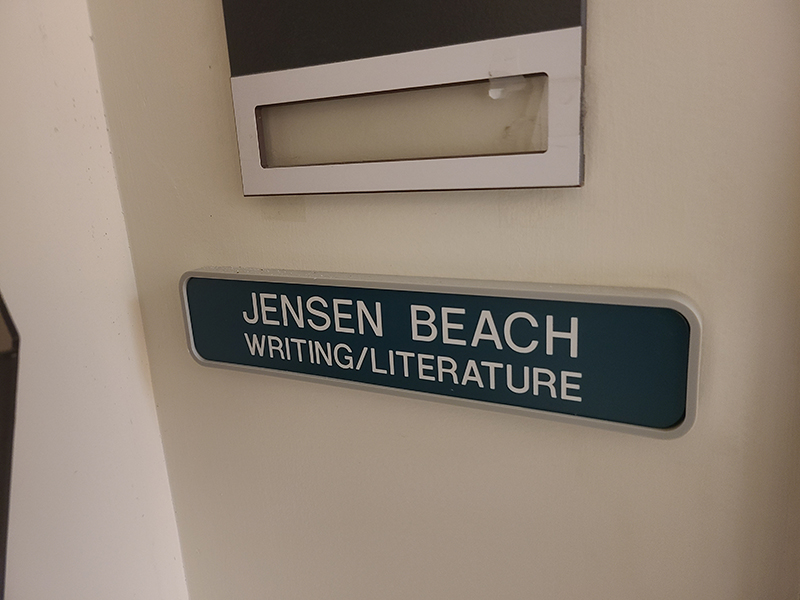On Monday, March 18, Bernie Sanders’ office announced that the senator had secured more than $42.5 million in federal funding to support 36 Vermont projects that address critical needs across the state. One of the recipients included as part of this “Congressionally Directed Spending (CDS)” package was the Lamoille Housing Partnership (LHP), which, according to Sanders’ press release, is to receive $550,000 “to convert a building on the Vermont State University campus in Johnson into 20-plus units of affordable senior housing and an onsite health clinic.”
This announcement, while potentially promising to the Johnson area, did at first catch a number of campus and community members by surprise. Questions understandably arose about when the project was first conceived and which campus building was involved, as well as when the conversion is slated to take place.
When asked about all this, VTSU’s Interim President David Bergh said that it was his understanding that there were discussions back in 2020-21, well before he got here, about a potential partnership with LHP. However, he was not aware of any recent conversations regarding the project. He does feel, though, that it is “an exciting possibility, as we continue to pursue Johnson campus facilities repurposing opportunities.”
Bergh said that his two main interests in coming back here to assume the leadership of VTSU relate to, one, the transformational impact our academic communities have on our state’s students and, two, the importance of our campuses as economic and cultural hubs in their respective regions.
“So the best ideas about how to utilize our campuses in service to both these aims is something to really be excited about.”
When asked which building the Lamoille Housing Partnership’s project related to, President Bergh was careful to say “it’s important to understand that this is LHP’s funding and project.” In other words, he didn’t know for sure which campus building was being considered; nor did he know what the funding would pay for, exactly, and he suggested that this question would be best directed to LHP.
Bergh did say, though, that he believed the 2020-21 conversations were centered around repurposing McClelland Hall, the building that used to house the Education and the Behavioral Sciences departments’ faculty offices and classrooms. He mentioned that at least one other outside entity had already used McClelland Hall in the recent past and seemed to recall that it was occupied by FEMA at one point.
Although Bergh does not consider the LHP project a done deal yet, he did say that “I would hope we could all look at it with an open mind and have good dialogue about this possible project and/or other alternative uses of spaces. We are committed to all five campuses surviving and thriving and increasing in vibrancy now that we have emerged from COVID and are working past the growing pains of becoming a new unified university. One way to do this is to repurpose spaces that we don’t need for student use, especially if they can serve community needs.”
Bergh stressed that, as of now, no purchase agreement for any Johnson campus buildings is in place, but that he would look forward to our university renewing discussions with LHP and would definitely include the campus and broader communities in the process. Furthermore, he emphasized that he would want to wrap such a discussion into VTSU’s larger dialogue on master planning and campus vibrancy. He said that this type of project (i.e., LHP’s) could make sense, but it’s important to him that “our first interest is our student body, which is our primary constituency.”
“Planning in the best interest of students and the campus teaching environment is of paramount importance to me,” Bergh said. “If it’s determined by all campus stakeholders that some of our spaces are underutilized or not needed,” he continued, “then we can think creatively about ways to repurpose to meet campus, community, and regional needs, and that would be something to be excited about and to pursue.”
Bergh views this LHP project as a potential win-win, as it could benefit both VTSU-Johnson and our entire region. But he reiterated that “we would first have to hear from students, staff, faculty, and the entire community to get their feedback” and that “everyone’s needs, in the context of an exhaustive and inclusive campus dialogue, will inform this and all future projects on any campus.”
President Bergh’s sentiments were echoed by VTSU Vice President of Business Operations Sarah Truckle, who said that the university would have wanted to do a full public engagement process before asking for any funding.
Regardless of when such a visioning process will take place, there have already been ideas brought forth of ways for both the university and the surrounding region to benefit from a partnership. As President Bergh explains, “if an agency fulfilling a community need were to, say, lease space from the college we could attempt to connect it with our academic programs and it might possibly even become a hub for internships.”
Basement Medicine reached out to both Bernie Sanders’ office and Lamoille Housing Partnership for this piece. Sanders’ outreach representative Beth Stern deferred comment to LHP. LHP Interim Executive Director Lucy Leriche, who is new to the position, said no one currently at LHP recalls requesting the federal funds. She said she reached out to former Executive Director Jim Lovinsky, who also did not recall the request but said any ask would have been made at least two years ago.
Bergh said that a planning process for all to get involved and to share ideas regarding the potential LHP collaboration would be coming soon. The idea would be to engage the entire Johnson campus and the greater community. Beyond this, “there will be multiple opportunities into the fall to discuss how all our campuses can best serve our students and our broader communities’ needs.”
Bergh went on to say that our campuses were built in a different time, one with different teaching modalities and a different demographic. So he feels that repurposing underutilized campus spaces could make good sense at this point. However, he also pointed out that we would also need to invest in the spaces we are continuing to utilize, as some of those aren’t properly equipped to meet the needs of our current teaching/learning modalities.
“So,” he concluded, “investing in those spaces we will continue to use for academic purposes and thinking creatively about those we might give over to serving the needs of our broader community, all this should be on the table as we move forward.





